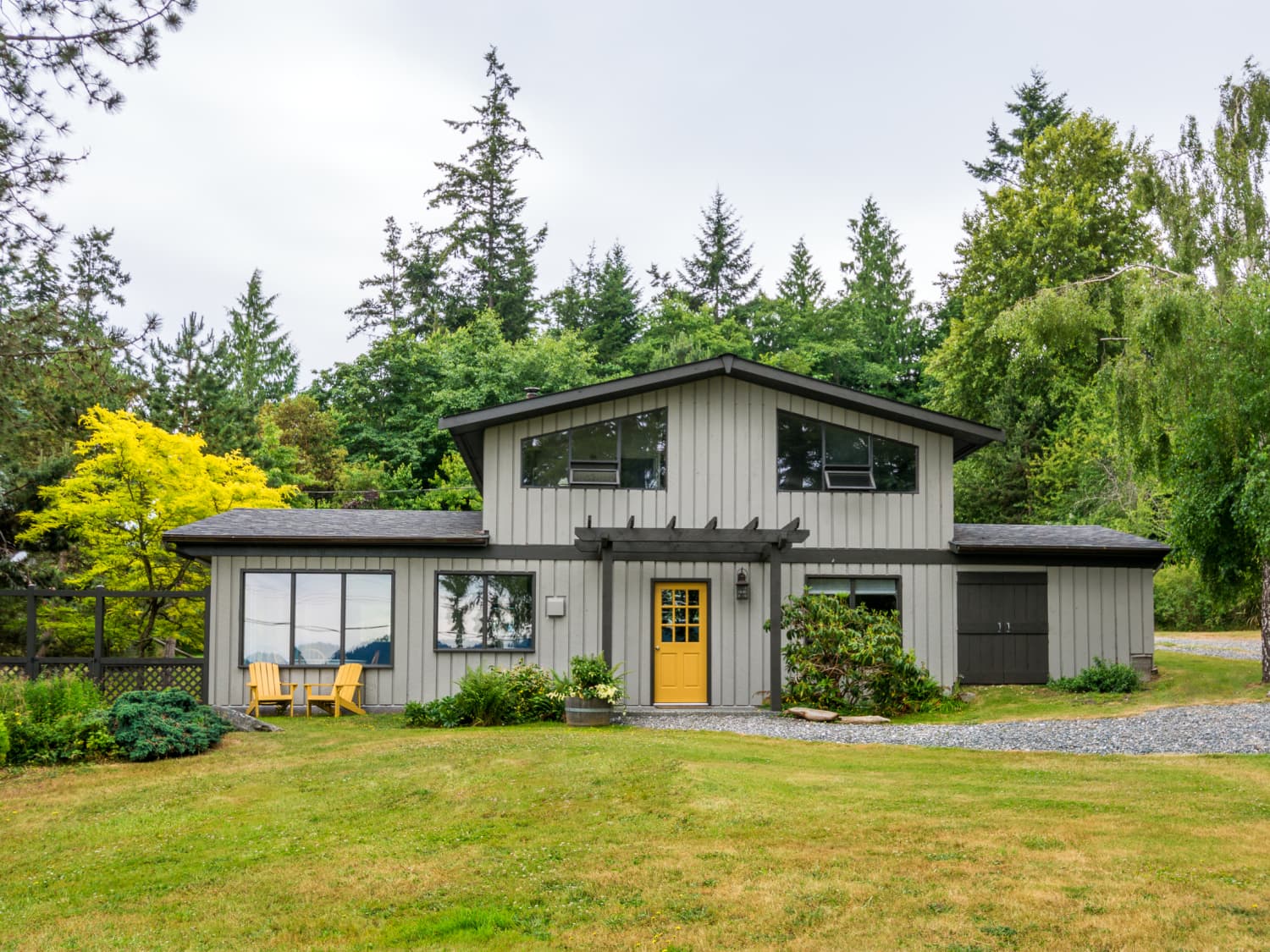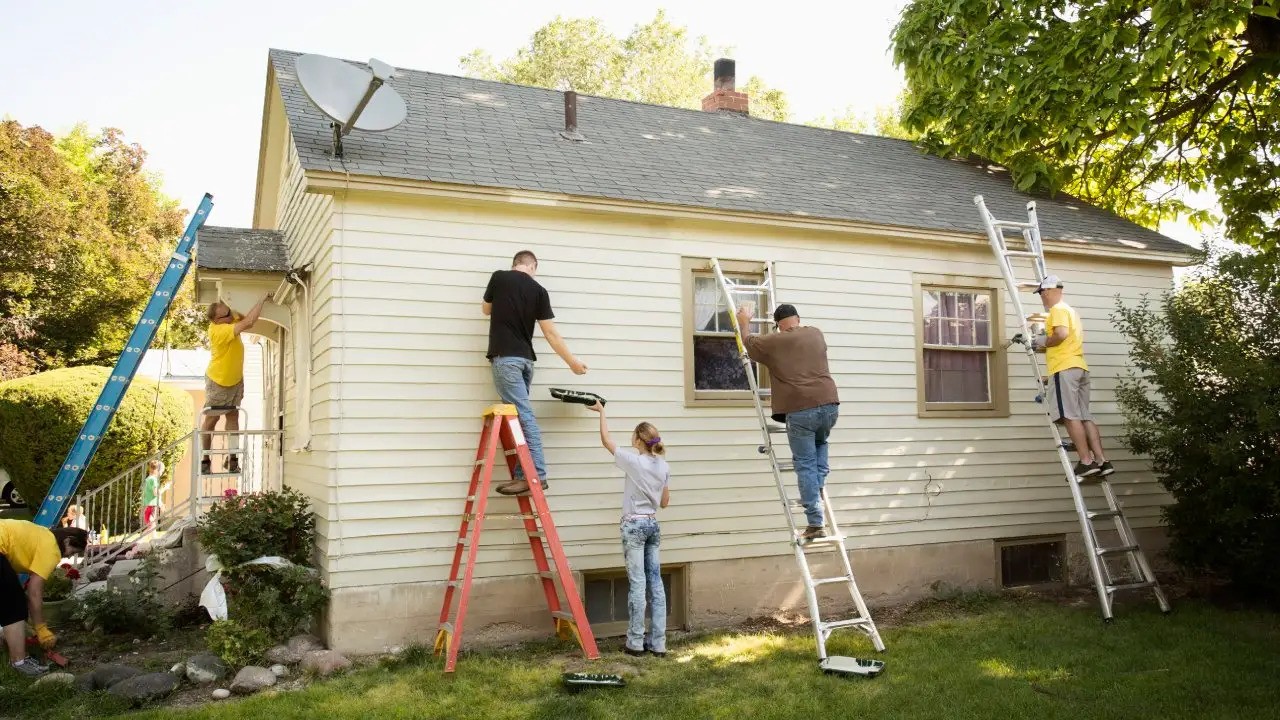Real Estate Flipping - The Crucial Factors For Profitable Ventures
There's more to becoming successful at real estate flipping than just making the house look better from the street and seeing those desired "sold" signs. Unfortunately, many people who want to be real estate moguls, including flippers, miss important details and end up failing.
Author:Liam EvansReviewer:Habiba AshtonJan 08, 20245.6K Shares104.1K Views

There's more to becoming successful at real estate flippingthan just making the house look better from the street and seeing those desired "sold" signs. Unfortunately, many people who want to be real estate moguls, including flippers, miss important details and end up failing.
Flipping real estate means buying homes and fixing them up so that you can sell them for a profit. Before you start this project, you should make sure you have the money, time, skills, knowledge, and patience you need to do it right. The next question is how to stay away from these usual mistakes.
What Is House Flipping?
House flipping involves a real estate investor buying a property, undertaking repairs or upgrades, and subsequently selling it to make a profit. This investment strategy prioritizes a quick resale rather than using the property for personal residence.
The most profitable scenarios in house flipping typically involve finding undervalued homes, acquiring them below market value, and securing the highest possible selling price after completing renovations. Despite the initial costs involved, it is possible to engage in house flipping with no money by employing various strategies.
How Flipping Houses Works
Flipping, as a real estate investment strategy, involves investors acquiring a property with the sole purpose of selling it for a profit rather than using it for personal residence. Investors engaged in flipping focus on the efficient purchase and subsequent resale of either individual properties or a portfolio of properties. Many investors aim to maintain a steady income stream by frequently executing these flipping transactions.
To successfully flip a building or house, the key is to acquire the property at a low cost and sell it at a higher price. Unlike a buy-and-hold strategy, the emphasis is on completing the transaction swiftly to minimize the time your capital is exposed to risk. The primary focus should be on speed, prioritizing a timely sale over achieving the maximum possible profit. This urgency is crucial, considering that each day incurs additional expenses such as mortgage payments, utilities, property taxes, insurance, and other homeownership-related costs.
However, the flipping strategy is not without its challenges. Typically, a strong real estate market, improvements to the property, or a combination of both drive price appreciation and profit realization. For instance, an investor may buy a property in a rapidly appreciating neighborhood, conduct significant renovations, and then list it at a price that reflects the upgraded features and appearance.
Flipping And Wholesaling
Real estate flipping, depending on one's viewpoint, may encompass wholesaling as well. Wholesaling involves an individual with a keen eye for undervalued real estate, which is considered suitable for flipping. In this process, the individual enters into a contract to purchase a property, subject to an inspection period, and subsequently sells the rights of the contract to a real estate investor for a fee or percentage.
This arrangement is more formalized than that with a traditional bird dog, and the ultimate buyer may or may not flip the property in question. Wholesalers are not restricted to examining properties exclusively for flipping purposes; they also identify income properties and explore longer-term appreciation opportunities for real estate investors.
IPO Flipping
Flipping in the context of Initial Public Offerings (IPOs) occurs when an investor sells shares within the initial days or weeks following the IPO. These investors capitalize on the early surge in stock prices that hot issues often experience. Although IPO flipping is somewhat discouraged through lock-up periods and guidelines for novice investors, a certain level of flipping is necessary to generate trading volume and market excitement after an IPO.
Also, IPO flipping can be financially appealing, given that many stocks reach their highest prices in the initial weeks and months following an IPO. It's not uncommon for these stocks to face challenges before potentially returning to their peak values, if at all.
Advantages Of House Flipping
Making a substantial profit is feasible through house flipping, with the typical gross profit in the first quarter of 2022 across the nation being $67,000, according to ATTOM. Matt Aitchison, a real estate investor and the founder of the educational platform 6 Figure Flipper, averages $40,000 to $50,000 per flip, with his highest earnings from a single flip reaching an exceptional $453,000.
For some individuals, house flipping becomes not just a lucrative side venture but a potential new part or even a full-time job. Some leverage it as their primary source of income, while others use it to supplement earnings for purposes such as vacations, savings, or contributing to their retirement fund.
Beyond personal financial gains, house flipping can contribute to improving neighborhood values. Revitalizing decayed properties that act as eyesores and bring down property values is a common motivation. Real estate investor Matt Aitchison emphasizes the gratification of solving someone's problem by transforming distressed properties, all while making a significant profit that contributes to building wealth.
Furthermore, house flipping provides an avenue to diversify investments. Real estate, as an alternative to traditional assets like stocks and bonds, is a popular long-term investment. Property values often move counter to equity markets, appreciating over time. Integrating real estate into an investment portfolio through property flipping presents an opportunity to capitalize on diverse investments.
Disadvantages Of House Flipping
House flipping often comes with significant challenges that prospective flippers should be aware of:
- Potential hidden issues in homes -Flippers frequently encounter substantial problems that require significant financial investments for repairs. Unexpected issues such as asbestos, mold, or termite damage can substantially increase renovation costs, adding complexity to the flipping process.
- Risk of legal complications -Buying a property without a clear title or neglecting to address and fix issues before selling can lead to potential legal troubles. Ensuring a solid team, including a reliable real estate attorney, is crucial to navigating potential legal challenges and protecting one's interests.
- Delayed selling time -The property may not sell quickly, leading to ongoing financial responsibilities for the flipper. Costs such as mortgage payments, property taxes, homeowners insurance, maintenance, and potential homeowners association dues can accumulate while the property is on the market. Having sufficient capital reserved is essential in case the flip doesn't yield a quick sale.
- High pressure and uncertainty -The inherent uncertainty in house flipping can result in both financial and emotional stress. Flippers may face financial strain, and the process can be emotionally draining without the right team, mindset, and discipline in place, emphasizing the importance of careful planning and preparation.
How To Get Started With House Flipping
Embarking on a house-flipping venture requires careful financial preparation and property selection. Here's a step-by-step guide to help you get started:
- Establish a comprehensive budget -Financial planning is crucial for the success of your project. Avoid underestimating costs by multiplying your initial budget by five, according to recommendations. This precaution ensures you have sufficient funds to cover unexpected expenses that may arise during the renovation process.
- Identify the right property -Tailor your property search to align with your budget and renovation capabilities. Explore options such as foreclosures, auctions, and short sales to find properties that match your financial constraints. Seek guidance from an experienced real estate agent specializing in house flipping who can assist in researching comparable properties and projecting price growth for optimal return on investment (ROI).
- Submit an offer -Once your financing is in order and you've identified a suitable property, make an offer. Professional flippers often calculate a home's after-repair value to determine the appropriate bid. Be prepared to consider multiple properties in case your offer on one falls through.
- Establish a realistic timeline -Recognize that different properties may require varying amounts of money and time for renovations. Whether it's a one-month or six-month project, allow sufficient time for necessary repairs, upgrades, and any required building inspections.
- Hire trustworthy contractors -If you lack the expertise to handle repairs yourself, enlist reliable tradespeople for the job. Check the licenses and references of potential contractors, ensuring their quotes align with your budget and they can meet your established timeline.
- Market and sell -Once renovations are complete, it's time to sell your property. While you can choose to sell it independently, collaborating with a real estate agent can help market the home to the right audience, expanding your reach and potentially optimizing your selling price.
Common House-Flipping Mistakes
While flipping houses presents financial opportunities, it's crucial not to dive in without substantial capital, proper guidance, and thorough preparation. To ensure profitability, house flippers should steer clear of these common mistakes:
- Insufficient funding -The nature of your project dictates your budget, and not every home renovation mirrors a reality show. Whether it's a full-scale renovation, a property that can be cleaned up and sold as-is, or a home requiring basic repairs for the next investor, it's essential to budget wisely. Experts advise doubling and even tripling your initial budget, as costs can accumulate rapidly, especially for novice flippers who might be taken advantage of by contractors.
- Underestimating the complexity -Flipping houses is not a simple, fly-by-night business. While a license may not be required, it demands time, money, and careful consideration. Relying on friends or TV shows for cues can lead to costly mistakes. Amateurs who underestimate the challenges often end up losing substantial amounts of money.
- Lacking the right team -Building a team of experienced and reputable professionals is crucial for success. A well-rounded team may include a seasoned house-flipping mentor, a real estate agent, a construction/remodeling company, a home inspector, a real estate attorney, and an accountant for tax preparation if house-flipping becomes a full-fledged business.
- Attempting part-time in the long term -House flipping is not an ideal part-time endeavor, especially for those with regular jobs. Addressing on-site issues requires immediate attention, and attempting to flip houses while working full-time may hinder success. For those serious about house flipping, it's advisable to commit to it full-time to navigate challenges effectively.
Where To Find Houses To Flip
As you explore potential financing options, it's equally vital to investigate suitable markets for house flipping. Seek out emerging areas where property prices are low enough to justify rehabilitation costs. Look for regions experiencing growth, with increasing employment opportunities and ongoing development projects.
Also, consider markets where properties sell relatively quickly, indicating a seller's market. These factors will aid in pinpointing areas with consistent demand and long-term appreciation potential, maximizing profit margins for your project.
The quest for an ideal market and property should align with your search for an investor. Sometimes, having a specific property to present can strengthen your pitch. Alternatively, you might secure financing first and then focus on finding the right property. In either scenario, both elements are integral to the success of your house-flipping venture.
Real Estate Flipping - FAQ
Do I Need To Have A Cash Offer To Flip A House?
Certainly. Cash offers can be more appealing to sellers, and this preference for cash transactions is often evident in home-flipping shows. Nationally, 62.7% of house flips involve cash purchases. However, it's important to note that financing is also a common method for funding house flips, with the choice between cash and financing often dependent on the specific circumstances of each transaction.
Which Cities Are The Best To Flip A House?
The optimal cities for house flipping depend on your specific criteria and financial resources. According to New Silver, a provider of capital to real estate investors, some top choices for house flipping include Jacksonville, Atlanta, El Paso, Charlotte (North Carolina), and Hartford (Connecticut).
How Long Does It Take To Flip A House?
On average, the house flipping process typically spans about four to six months, starting from the purchase date to the sale of the finished home. It's essential to note that the duration can vary for each project. While some may be completed in a month or so, others may necessitate more extensive work, resulting in a longer timeframe.
Why Is Flipping Illegal?
It involves buying a property and then reselling it for more money. Usually, when someone flips a property, he or she makes repairs and improvements beforehand. It can become illegal if the person falsely represents the condition and value of the property. This equates to fraud, which carries serious consequences.
What Skills Do You Need To Flip Houses?
People who already know how to do things like woodworking, plumbing, painting, and so on, will know how to flip a house better than people who don't. In many cases, making upgrades and repairs on a house is going to increase the return on investment dramatically.
Conclusion
Make sure your earnings are in order before you start real estate flipping. Check out different types of home loans, like home equity loans, home equity lines of credit, and building loans, that can help you pay for investment properties. You can also get personal loans for home improvements, but you should compare the interest rates and terms to those of house loans first.

Liam Evans
Author

Habiba Ashton
Reviewer
Latest Articles
Popular Articles

